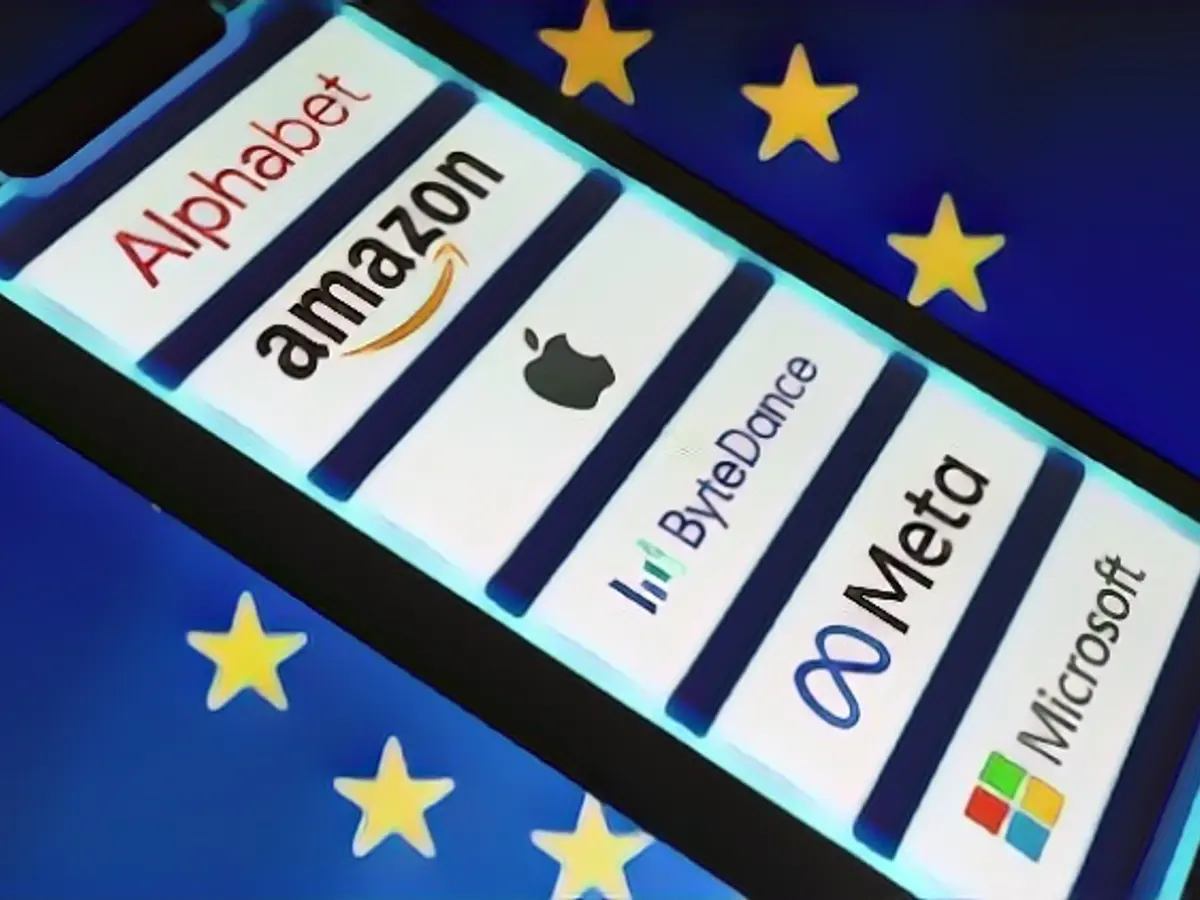Internet companies continue to trick EU consumers
It is well known that large digital companies try to direct users online. In the EU, the Digital Services Act is supposed to prevent this and ensure transparency. Although it has been in force for months, Amazon, Google and co. are still circumventing the rules, consumer advocates complain in a study.
One hundred days after the European DigitalServices Act (DSA) came into force, large internet companies from the USA and China are still not complying with the new legal obligations. This is the result of a study by the Federation of German Consumer Organizations (vzbv). Amazon, Booking.com, Google Shopping and YouTube are still using illegal design tricks ("dark patterns") to steer consumers in a certain direction.
Since August 2023, providers of very large online platforms have been prohibited from exploiting human behavioral or perceptual patterns through design tricks - for example through the color scheme of buttons or long click paths. "People feel manipulated, confused or tricked by design tricks on online platforms," said Ramona Pop, Chairwoman of the vzbv. "It is truly astonishing how persistently companies disregard the applicable laws or only implement them half-heartedly."
There is a lack of information, especially in advertising
The consumer advocates also discovered serious shortcomings in the transparency of advertising criteria. Large online platforms are obliged to provide comprehensible and easily accessible information about the criteria according to which advertisements are displayed, explained the vzbv. It should be possible to access this information directly by clicking on the advertisement. "None of the providers examined have fulfilled this obligation to date."
The association had investigated Instagram from the Meta Group, Snapchat, TikTok and X/Twitter. At least all of them, with the exception of Snapchat, had labeled the ad content as advertising and identified the respective advertiser by name.
The consumer advocates are also not satisfied with the way in which the major internet players present the "small print". According to the DSA, providers must, for example, present their contact information in a way that is easy to find and make their general terms and conditions transparent. Apple's App Store, Facebook and TikTok now offer a contact option. However, in the view of the consumer advocates, this is "rather difficult to access". The association also criticized that some of the terms and conditions are difficult to find and do not always contain all mandatory information, for example on internal complaints systems. The T&Cs of the websites of Booking.com and Google Search as well as the apps of TikTok and X/Twitter were examined - some with a length of over 50 A4 pages.
Read also:
- Christmas for the garbage can? The flood of packaging during the holidays
- New week starts with snow and risk of icy roads
The Verbraucherzentrale Bundesverband, a prominent consumer advocacy group in Germany, has criticized tech giants like Amazon, Google, and others for not adhering to the EU's Digital Services Act, which aims to prevent manipulation of users and ensure transparency.
The Federation of German Consumer Organizations (vzbv) found that even after the DSA came into effect, large companies continue to use "dark patterns" or deceptive design tricks to steer consumers, which is against the law.
The vzbv also identified a lack of transparency in advertising criteria on platforms such as Instagram, Snapchat, TikTok, and Twitter. These platforms are required to provide clear information about advertising display criteria and make it easily accessible, but they have not complied with this obligation.
Apple's App Store, Facebook, and TikTok have offered a contact option, but the consumer advocates find it difficult to access. They also criticize that some terms and conditions are hard to find and don't always contain all necessary information, such as internal complaints systems.
The Digital Services Act also requires online platforms to present their general terms and conditions in a transparent way. However, the vzbv discovered that some platforms, including Booking.com and Google Search, have terms and conditions that are lengthy and difficult to navigate.
Source: www.ntv.de








